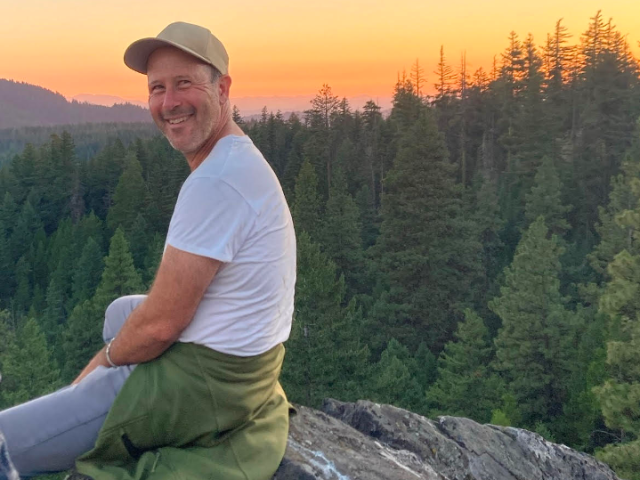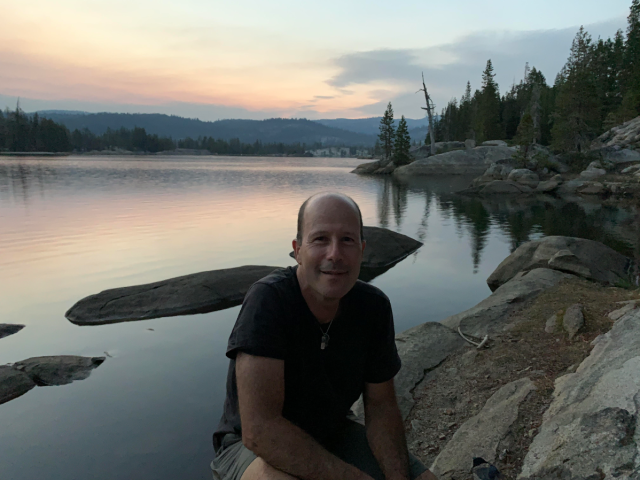Meet Adam Safir ‘91 (CCS Chemistry)
Polymer scientist excels in leadership and entrepreneurship

Meet Adam Safir, ‘91 (Chemistry) a polymer scientist, who upon completing his undergraduate degree at the College of Creative Studies (CCS) went on to receive in 1996 a Ph.D. in Metal Mediated Polymerizations and Conducting Polymers at UC Berkeley (UCB), spending his final year as a visiting scholar at UMass Amherst Polymer Science Department. It is not unheard of for CCS graduates upon receiving their undergraduate degree to continue to excel academically by pursuing a doctorate degree, but each story is unique. Adam enjoyed his STEM courses at CCS, but also took the opportunity the College offered (and still does) to nurture his artistic side. CCS met up with Adam who shared his story. As you can see, Adam continues to flourish, balancing his science and creativity in leadership and entrepreneurial roles.
College of Creative Studies (CCS): How has CCS impacted your life?
Adam Safir (AS): At a high level CCS showed me that there can be different paths through life and that if you are persistent, think clearly about what you want and how to achieve it, then making those small to large changes from the norm are achievable.
CCS: Why did you choose to come to CCS? How did you find out about the College?
AS: I first heard about CCS through a chemistry exam competition that the college used to run throughout California back in the 1980s. I did pretty well in the exam, not good enough to place statewide but good enough to get a partial fellowship to UCSB, which was meaningful to me and got me to come check out the university.
“While my academic focus was in STEM, I am also artistically inclined, which made CCS a special place.” – Adam Safir ‘91 (CCS Chemistry)
CCS: Tell us about your experience at CCS, including the research you conducted, your favorite aspect or professor or experience while at CCS?
AS: I loved my time at UCSB in general, and CCS helped make that experience balanced. With my academic focus in STEM, the CCS program allowed me to tailor my classes to focus heavily on the sciences, and be able to take a lot of upper division courses and graduate courses. Early in chemistry I was invited to start doing undergraduate research in Professor Watt’s labs. I continued with this work in the area of organometallic chemistry for 3 years, which helped me a ton when I went to complete my Ph.D. at UC Berkeley. While my academic focus was in STEM, I am also artistically inclined, which made CCS a special place. I not only took some of the excellent fine arts classes offered, but also joined a group of CCS students and members of the greater Santa Barbara art community who would meet on Friday afternoons with a model and spend a few hours with charcoal, graphite, or conté. It was a fabulous way to end the week, and gave me a wonderful experience and community.
Also, the curriculum flexibility which CCS offered allowed me to take really challenging and rewarding upper division history and religious studies courses to fulfill my requirements. These are some of the courses I remember best today, and would likely not have been available to me if I was pursuing a chemistry degree elsewhere.
CCS: If you attended graduate school, where and what did you study as a graduate student? How did your CCS education help you excel as a graduate student?
AS: After graduation I went up to the UC Berkeley chemistry department for graduate school. I had chosen UCB in part because of their focus on research and relatively minimal class load. The large number of upper division and grad courses I took at UCSB put me in a fabulous position to excel in the UCB courses I did take, and my years of undergraduate research made me ready for the transition into the graduate research environment. My choice of graduate studies was in organometallic catalyst design and polymer chemistry, so my undergraduate research in organometalic chemisty gave me the foundation to excel. My years of undergraduate research taught me so much about how to handle myself in a lab, how to conduct library literature reviews and write research papers, and how to think creatively in science and be excited about the unknown that I was ready to fully dive into my graduate research experience.

“The large number of upper division and grad courses I took at UCSB put me in a fabulous position to excel in the UCB courses I did take, and my years of undergraduate research made me ready for the transition into the graduate research environment.” – Adam Safir ‘91 (CCS Chemistry)
CCS: Describe your career, profession, job. Does it relate to what you studied at CCS? If so, how?
AS: I have spent my career in startup companies, always working in areas related to materials and polymers. This started with a focus on new materials discovery, which was a clean transition from my studies while at CCS and then at UCB. During that time, I also worked closely with mechanical and software engineers to design and implement novel automated/parallel equipment for accelerating research. While still science-focused, this work became the outlet for my artistic energy. I then started working at the interface of materials and synthetic biology which is the use of biological organisms as ‘factories’ for producing chemical ingredients which put me in a unique position of having to help ‘translate’ between chemists and biologists. More recently I have expanded on this type of communication role, taking charge of project management teams and business process development within scientific organizations. I have most recently joined a new startup, again working at the interface of polymer science and biotechnology, using synthetic polymers to stabilize enzymes for use in foreign environments.
CCS: What advice would you give to current and future CCS students?
AS: CCS is this really unique small school environment in the midst of a very large research University. So I guess I would say that while taking advantage of the College’s classes and curriculum within your major, make sure to also take advantage of what CCS has to offer in other fields.
All of us at the College of Creative Studies–faculty, students, and staff–appreciate Adam’s story as it provides critical feedback on the importance of the College’s experiential learning model, including flexibility for students to explore their creativity, it has offered for the past 55 years. As a member of the CCS community, Adam embodies the essence of CCS, driving his creativity as an expert and making a difference as a leader in his field and community.